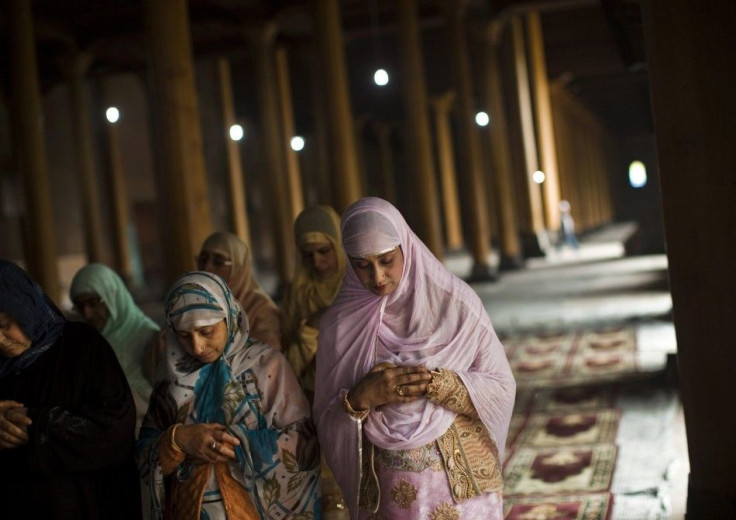Kashmir To Tourists: Follow Dress Code Or Go Home

Here's the idea: Tourists from India and abroad fly into Jammu and Kashmir and are immediately advised to visit the official tourism office to review a dress code advisory, shed any objectionable attire and don a traditional pheran to respect the local ethos and culture.
Not a fan of the idea? Go home.
That's the demand issued by a hard-line religious group in Indian-administered Kashmir. The Jamaat-e-Islami has said that visitors, particularly foreigners, must follow its recommended dress code when traveling within the Muslim-majority valley.
A Jamaat spokesman, Zahid Ali, has specifically cautioned against foreign females wearing items like miniskirts.
On Tuesday, Jamaat issued a statement asking tourism officials to impress the tourists to honor the local ethos, failing which there can even be an angry reaction.
The Kashmiris cannot for the sake of their economy give up their divine values at any cost, the statement continues. We need no such guests who can become a cause of derailing the society from the right track and spread immorality and immodesty in the name of tourism.
Jamaat also impressed upon the tourism department to remain vigilant against those elements who, in the garb of promoting tourism, are in fact promoting vulgarity, alcoholism, drug-traffic and other immoral activities.
Kashmir's fresh mountain air and Himalayan views made it a popular destination up until 1989, when a separatist insurgency scared many people away. Tens of thousands of people have been killed in Kashmir since the armed rebellion began, but violence is on the decline, and the region has seen a record number of tourists in 2012. Officials now expect some two million visitors during peak season this summer and autumn.
Most Western countries have travel advisories for Kashmir, but Germany became the first to ease its warning last year. With tourism on the rise, officials fear Jamaat's new clothing restrictions will create hurdles in the government's efforts to convince more countries to remove their advisories.
Jamaat-e-Islami, being a responsible organization, should have held a debate with the stakeholders in the tourism industry on the issue before going public, Kashmir Tourism and Restaurant Association President Siraj Ahmad told India's Economic Times.
The issue is part of a greater debate over religious attire. The Kashmiri Muslims argue that they are the host and that guests should abide by their moral codes.
Others argue that the traditional idea is that a host should make their guest feel at home, even if it means doing things a bit differently. This, after all, is what Muslims have argued in countries like France, which has attempted to restrict religious clothing that it says is a sign of women's debasement.
The state government in Jammu and Kashmir has, for now, remained silent on the diktats, and the dress code is not enforced. Tourists to India, however, are generally cautioned to dress appropriately, particularly when visiting religious sites.
READ ALSO:
Under Mohamed Morsi, Will Egypt's Tourism Industry Conform To Islamic Law?
© Copyright IBTimes 2024. All rights reserved.












